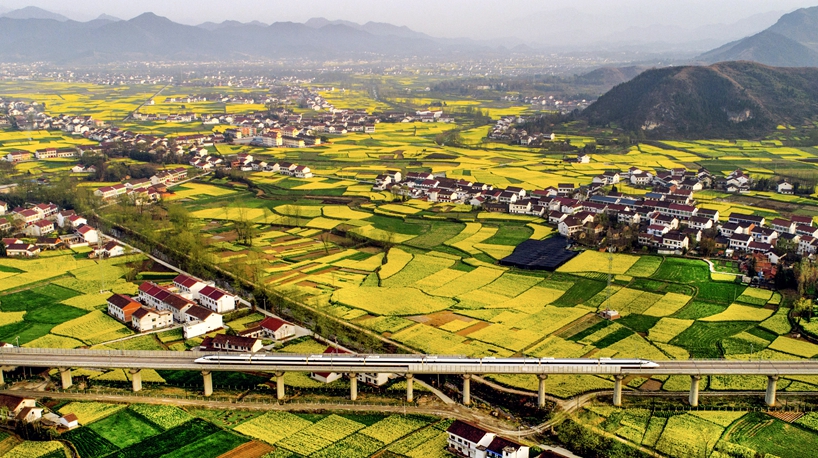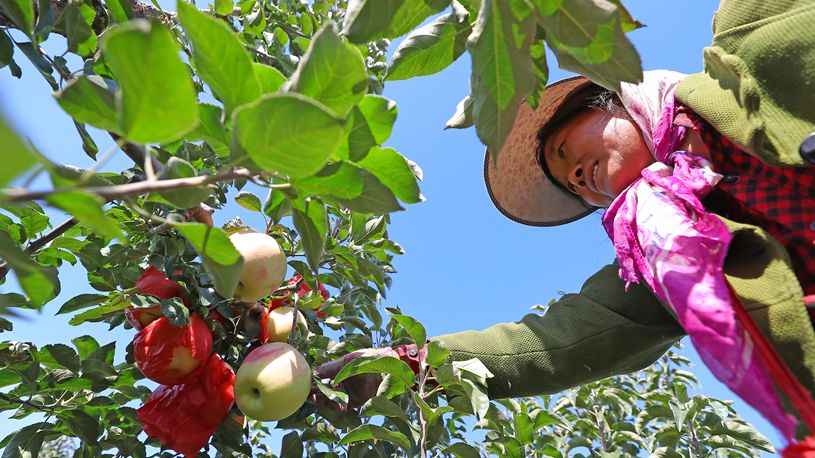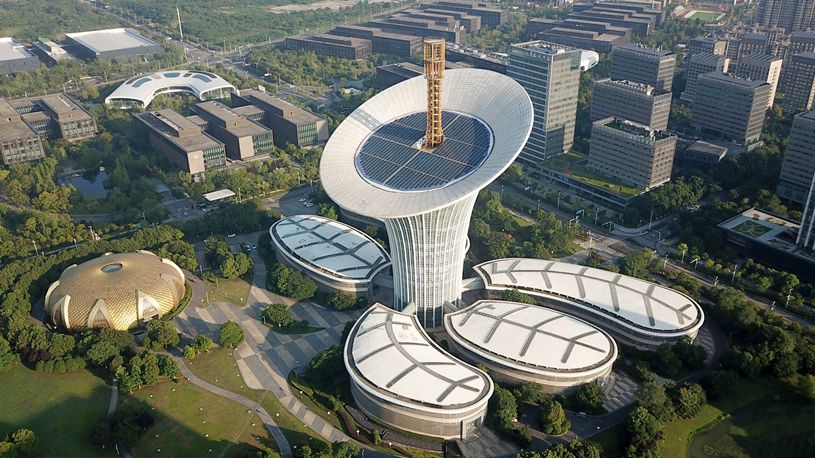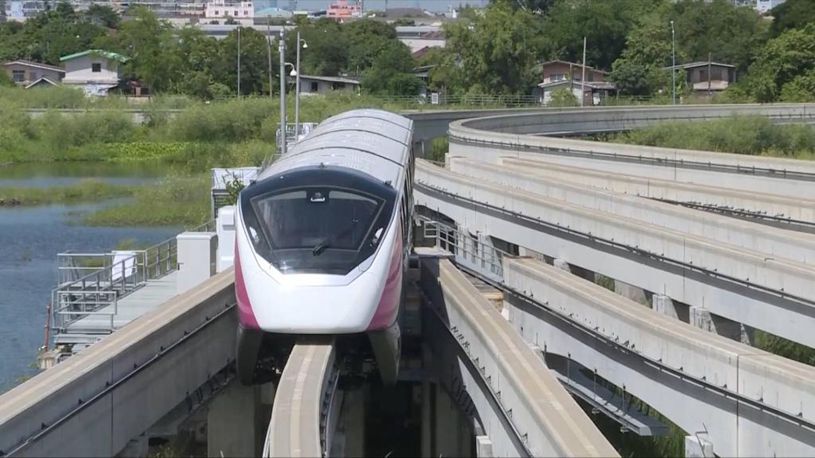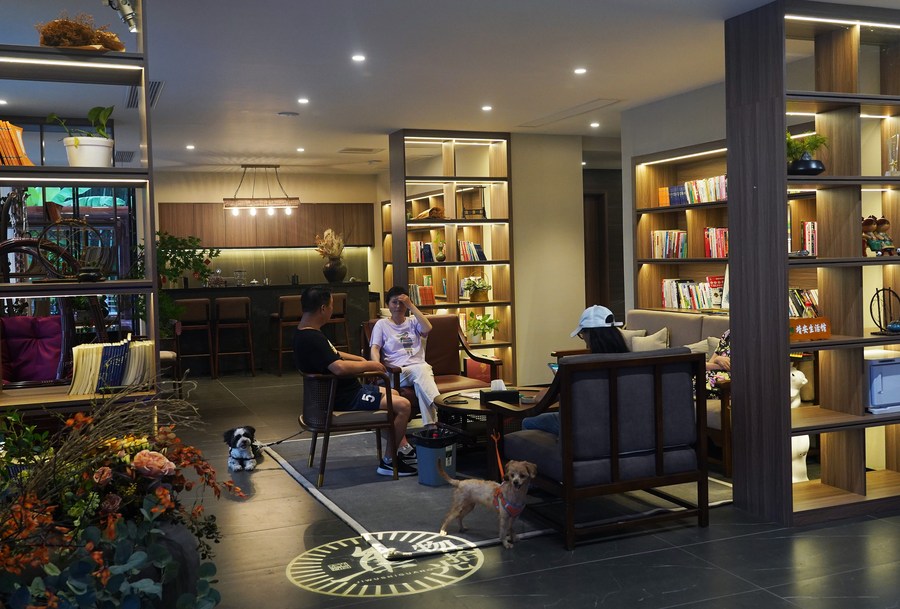
Tourists enjoy leisure time at a guest house in Hegang Village of Zhongyuan Town in Jing'an County, east China's Jiangxi Province, July 27, 2022. (Xinhua/Wan Xiang)
TAIYUAN, Sept. 23 (Xinhua) -- As stars twinkle and breezes blow, Wang Hui drifted off to sleep in a forest cabin nestled in the mountains.
Wang, a resident from Taiyuan, capital of north China's Shanxi Province, took a 4-hour-long drive to Songmiao Village in neighboring Jincheng City, to enjoy his holiday in nature.
"Living in the scenic mountains keeps me away from the hustle and bustle of the city," Wang said. The cabin costs 600 yuan (about 85 U.S. dollars) a night, but he believed it was worthwhile since his pressure was greatly relieved.
The Songmiao Village rebranded itself from a small mountain village into a "sleep-friendly resort town" in 2021. Tourists are expected to improve their sleep here by taking Chinese herbal medicine baths, tasting Chinese traditional medicinal cuisine, and doing physical activities such as hiking and cycling.
The occupancy rate of the cabins and guesthouses in the town stood at about 70 percent in 2021.
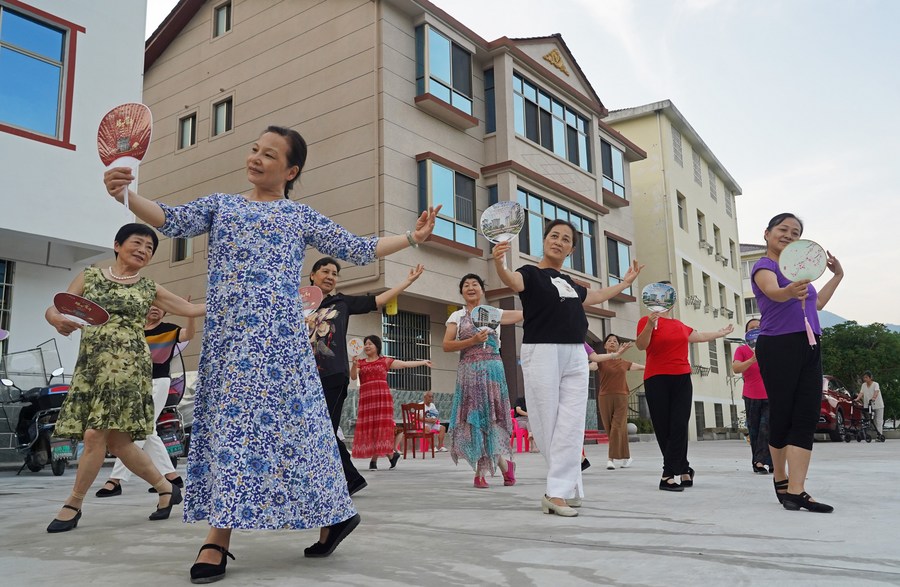
Tourists dance in Sanping Village of Zhongyuan Town in Jing'an County, east China's Jiangxi Province, July 27, 2022. (Xinhua/Wan Xiang)
Many local governments around the country have rolled out a slew of policies to boost healthcare tourism development by combining local resource advantages.
Zhang Fuming, vice governor of Shanxi Province, said that the province has introduced 17 measures and set up a healthcare industry development fund of 2 billion yuan to subsidize related projects and invigorate the market vitality.
Shanxi's Jincheng City takes advantage of local herbal medicine resources and ancient villages to build a cluster of healthcare and recreation guesthouses.
The healthcare and recreation park in Jiaozuo City, central China's Henan Province, features Tai Chi, a traditional Chinese martial art that focuses on exploiting the human body's inner energy to achieve physical and mental harmony.
China's health industry market is estimated to reach 16 trillion yuan by 2030, according to the country's Healthy China 2030 blueprint. The future market size of the healthcare industry might be even larger, said Chen Bin, vice director of the China Tourism Commodity And Equipment Association.
The healthcare industry is promising, said Zhang Xiangqun, deputy general manager of Aerospace Medical & Healthcare Technology Group Co., Ltd, a subsidiary of China General Technology (Group) Holding Co., Ltd. The latter established a specialized healthcare company at the end of 2021, with the business volume expected to exceed over 10 billion yuan.
"The healthcare tourism industry will provide consumers with better and diversified products to meet people's consumption needs and provide new momentum for the market," said Jing Linbo, president of the Chinese Academy of Social Sciences Evaluation Studies. ■



